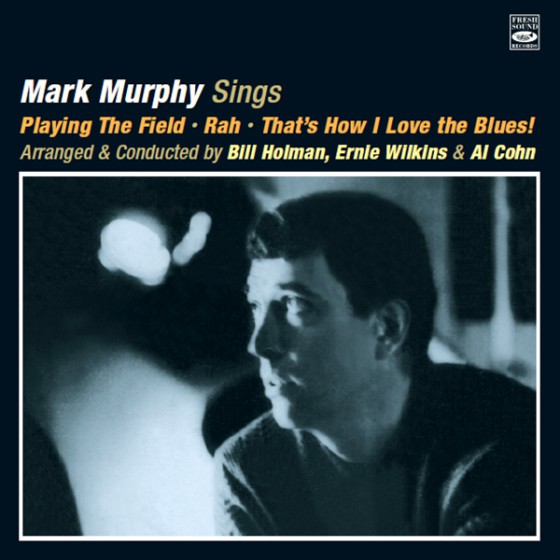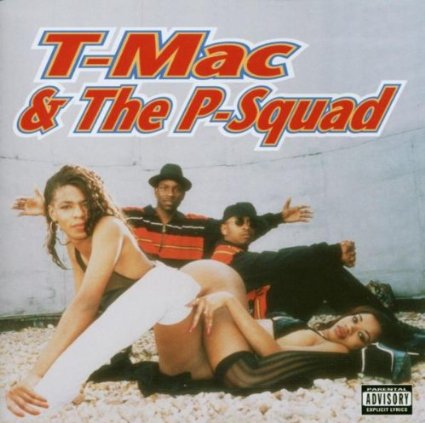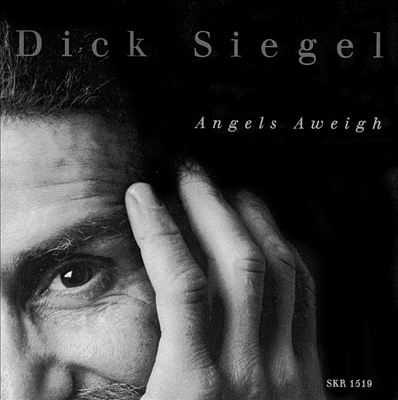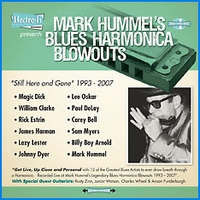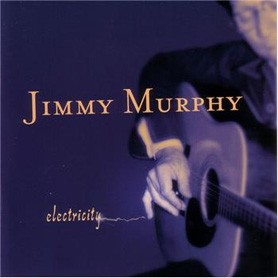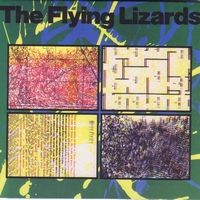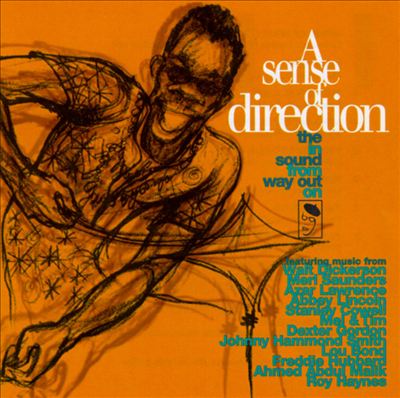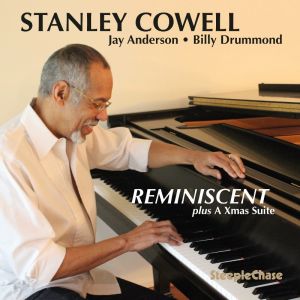Mark Murphy – Sings – Playing The Field – Rah – That’s How – That’s How I Love the Blues! – 2CD
€20,00 €15,73
Description
During his early days, Mark Murphy elicited a mixed response from critics. Though all of them recognized his extraordinary skill in working through changes, his precise sense of time, and his general musicianship, all charged him with affectations of enunciation.
In 1960 Playing the Field came out. It would be Murphys third and last album for Capitol, and although it included an excellent set of big band and trio arrangements by Bill Holman, it never reached popular audiences as the label intended, so recognition still eluded Murphy. His first real acceptance arrived a year later, when he signed with Riverside to record a set of standards and bop vocals named Rah It featured some fine scores written by Ernie Wilkins, and was promptly followed by the themed album Thats How I Love the Blues!, skillfully orchestrated by Al Cohn, with top-notch backing by groups featuring jazz heroes such as Clark Terry, Wynton Kelly, Al Cohn, Bill Evans, and Blue Mitchell.
This set here is complemented by eight first-class tunes from rare Riverside singles. These recordings showcase Mark Murphy as the genuinely original performer he is, but they also displayed Murphys penchant for trawling the entirety of the 20th century popular/jazz repertory for songs, ranging from the slightly overdone to the downright forgotten.
Track Listing:
CD1:
1. Put the Blame on Mame (Roberts-Fisher) - 2:46 2. Swinging on a Star (Van Heusen-Burke) 2:32 3. My Gals Come Back (McKinley-Powell) - 1:47 4. Playing the Field (Allen) - 2:41 5. Heart and Soul (Carmichael-Loesser) - 2:36 6. Love Is a Many Splendored Thing (Sammy Fain-Paul F. Webster) - 1:49 7. Honeysuckle Rose (Waller-Razaf) - 3:05 8. Isnt It About Time? (Morin) - 2:05 9. Wishing (Buddy DeSylva) - 3:15 10. As Long As I Live (Arlen-Koehler)- 1:43 11. I Didnt Know About You (Duke Ellington-Bob Russell) - 3:18 12. But Not for Me (George & Ira Gershwin) - 4:23 13. Angel Eyes (Brent-Dennis)- 3:10 14. On Green Dolphin Street (Ned Washington-Bronislau Kaper) - 3:40 15. Stoppin the Clock (Landesman-Kral) - 3:07 16. Spring Can Really Hang You Up the Most (Fran Landesman-Tommy Wolf) - 3:46 17. No Tears for Me (uddleston-McIntyre) - 3:08 18. Out of this World (Mercer-Arlen) - 4:46 19. Milestones (Miles Davis) - 2:26 20. My Favorite Things (Richard Rodgers-Oscar Hammerstein II) - 2:12 21. Doodlin (Horace Silver) - 3:26 22. Lil Darlin (Neal Hefti-Jon Hendricks) - 4:58 23. Twisted (Wardell Gray-Annie Ross) - 2:25
CD2:
1. Going to Chicago Blues (Basie-Rushing) - 4:11 2. Señor Blues (Horace Silver) - 2:23 3. Thats How I Love the Blues (Ralph Blane-Hugh Martin) - 3:43 4. Jelly Jelly Blues (Hines-Eckstine) - 3:22 5. (Im Left with the) Blues in My Heart (Benny Carter-Irving Mills) - 2:10 6. Fiesta in Blue (Mundy-Goodman-Lambert-Hendricks) - 3:09 7. Rusty Dusty Blues (Williams) - 2:01 8. Blues in the Night (Mercer-Arlen) - 3:37 9. The Meaning of the Blues (Troup-Worth) - 2:50 10. Everybodys Crazy Bout the Doggone Blues (Cramer-Layton) - 2:22 11. Blues, Youre the Mother of Sin (Sid Kuller-Billy Eckstine) - 3:16 12. Wee Baby Blues (Johnson-Turner) - 5:17 13. Love (Martin-Blane) - 2:37 14. Come and Get Me (Mark Murphy) - 2:51 15. Fly Me to the Moon (Howard) - 2:57 16. Why Dont You Do Right? (McCoy) - 2:27 17. Like Love (Galvis-Young) - 2:10 18. Fly Away, My Sadness (Lees-Bernhardt) - 2:03 19. I Dont Worry Bout You (Norman Mapp) - 2:31 20. Nothin But a Fool (Norman Mapp) - 2:43
Sources CD 1:
Tracks #1-12, from the album
"Playing the Field" (Capitol T 1458)
Tracks #13-23, from the album
"Rah" (Riverside RLP 9395 Stereo)
Sources CD 2:
Tracks #1-12, from the album
"Thats How I Love the Blues!"
(Riverside 9441 Stereo)
Tracks #13-14, from the Riverside single R 4519
Tracks #15-16, from the Riverside single R 4526
Tracks #17-18, from the Riverside single R 4537
Tracks #19-20, from the Riverside single R 4565
Personnel:
Mark Murphy sings in all tracks
Personnel on "Playing the Field"
Orchestra Arranged & Conducted by Bill Holman: Conte Candoli, Ray Triscari, Stu Williamson, Al Porcino (tp); Frank Rosolino, Lew McCreary, Bob Fitzpatrick (tb); Joe Maini, Al Thomson (as); Med Flory, Bill Perkins (ts); Jack Nimitz (bs); Al Hendrickson (g); Jimmy Rowles (p); Joe Mondragon, Shelly Manne (d).
Capitol Tower, Hollywood, July 5 & 7, 1960
Personnel on "Rah"
Orchestra Arranged & Conducted by Ernie Wilkins: Clark Terry, Blue Mitchell, Joe Wilder, Bernie Glow, Ernie Royal (tp); Jimmy Cleveland, Urbie Green, Melba Liston (tb); Wynton Kelly, Bill Evans (p); Barry Galbraith, Sam Herman (g); Art Davis, George Duvivier, Wendell Marshall (b); Jimmy Cobb (d); Ray Barretto (conga).
Plaza Sound Studios, New York City, September 15,19,22 & October 16, 1961
Personnel on "Thats How I Love the Blues!"
Orchestra Arranged & Conducted by Al Cohn: Nick Travis, Clark Terry, Snooky Young (tp); Bernie Leighton or Dick Hyman (org); Roger Kellaway (p); Jim Hall (g); Ben Tucker (b); Dave Bailey (d); Willie Rodriguez (conga & tambourine).
Plaza Sound Studios, New York City, October/December, 1962
Personnel on Singles:
Tracks #13-16, with Orchestra (1962)
Tracks #17-28, Al Cohn & His Orchestra (1962)
Tracks #19-20, Orchestra Arranged by Fred Norman (1963)
This compilation produced for release by Jordi Pujol
Reviews:
1.vibe.com - Tim Stenhouse - January 2016
"One of jazz's greatest losses in 2015 was the passing of Mark Murphy, a truly original and innovative singer who combined exquisite phrasing with incredibly witty song writing, updating and modernising the use of the English language in everyday speech, and a theatrical approach to the art of jazz of singing that set him apart from his peers. This re-issue, although dating from 2014, serves as a fitting tribute to Murphy and makes for essential listening on the early part of his career. However, in order to gain a fuller picture on how his singing evolved, a new anthology of his albums on the Muse label is urgently required and one that covers his bop-inflected material through to his love affair with Brazilian music, and his more experimental musings with challenging covers of jazz instrumental classics old and new.
The first album contained within, 'Playing the Field', recorded in 1960 is the most conventional in nature and a young Murphy was striving to find his own voice at this early point. Nonetheless, the choice of covers was judicious and displayed a wider knowledge of the Great American songbook. Stylistically, the album is divided into two parts, the first an orchestra-led side one and a stronger trio-based second side that included no less than Jimmy Rowles on piano and Shelly Manne on drums. Thus Murphy tackles Fats Waller's, 'Honeysuckle Rose', in addition to the Gershwin brothers 'But not for me'. An early example of his mastery of ballads comes in his reading of Hoagy Carmichael's Heart and Soul'. First albums tend to be something of a hit and miss affair with time needed to adapt to the requirements of the studio, but this was at the very least a competent first effort, even if it broke no major new ground.
However, with the second album recorded in 1961, 'Rah!', Mark Murphy had made rapid progress and gained much needed national exposure with a recording that, for many, remains the definitive Murphy sound (this writer would beg to differ and instead offer up 'Stolen Moments' as more reflective of his fully matured voice) and it is indeed a vocal jazz album of some distinction, arranged and conducted by Ernie Wilkins with a fine brass section and musicians of the calibre of Wynton Kelly, Jimmy Cobb and Ray Barretto in the rhythm section. The album cover itself with Murphy in laid back attire with a protest-style placard containing the album title (did Bob Dylan possibly copy this format and use it as the template for his 'Don't look back' film? One wonders) personified the very nature of the jazz hipster and certainly Murphy, along with the late great Eddie Jefferson and, to a lesser extent, Babs Gonzales also, were pioneers of incorporating hip street 'jive talk' into the jazz cannon. Miles Davis and John Coltrane (with Bill Evans close in pursuit) had changed the face of jazz with modal music such as 'Milestones' and 'Kind of Blue' and the title track of the former was chosen by Murphy for what proved to be a storming rendition that swings crazily from start to finish. Adding Latin percussion from Willie Rodriguez, this is arguably the strongest alternative version of Miles' classic, though the Latin Jazz Quintet and Johnny Lytle's re-titled 'Selim' ('Miles spelt backwards) would be strong instrumental contenders. Mark Murphy's elasticity of voice is showcased on a Horace Silver perennial favourite, 'Doodlin', and repeatedly throughout his career he would love to juggle with and manipulate words in a way that few writers could manage. Among the singer's influences, that of Frank Sinatra, is an obvious one and on 'Green Dolphin Street' Murphy's straight ahead treatment compares favourably with any superior crooner.
The second CD focuses on one of Mark Murphy's strongest, yet underrated albums, 'That's how I love the blues!', recorded in 1962 and with orchestrations arranged and conducted by Al Cohn who does a sterling job. Murphy sounds very much at ease in the studio now and in his choice of material playful too, exploring the various manifestations of the blues in its myriad forms. The title track is a revelation and features such unusual, yet totally endearing phrases such as, 'Like a Frenchman loves his sous [old French currency], I love the blues'. Horace Silver once again features as a song writer with the incomparable 'Senor Blues' a credible alternative to the Bill Henderson original while Murphy was evidently soaking up other singers such as Jimmy Rushing on a straight reading of 'Going to Chicago Blues'. Aiding proceedings no end was a top studio band that included trumpeter Clark Terry, guitarist Jim Hall, bassist Ben Tucker and percussionist Willie Rodriguez. This album should not be overlooked and, at this period in his career, may actually have been the most cohesive.
As a major bonus we have four extremely hard to find 45s from the Riverside label, with both 'A' and 'B' sides included that attempted to sell the singer to a wider audience. The strongest and most representative of Murphy to these ears is 'Why don't you do right?' that could easily have featured on any subsequent album while his love of Sinatra is re-emphasized on 'Fly me to the moon (In other words)'. Both these songs are included on one of the 45s. In general, Mark Murphy's ability at storytelling would remain undiminished throughout his career with future high point being 'Stolen Moments' (1978) and 'Bop for Kerouac' (1981). These early sides reveal the potential that existed within and as such they are precious gems that can be listened to over and again with new insights gleaned into Murphy's craftsmanship."
2. All Music - Eugene Chadbourne - -Rah
"This early-'60s effort, not Murphy's first but still pretty early in his discographical canon, has worn well over the years. Credit of course can be lavished on the vocalist himself, who didn't sound like this 20 years later, although every stage of his developing vocal chops has been interesting to be sure. On tracks such as "Green Dolphin Street," he dives into the rhythm with the relaxed calm of an expert. And when the result can be the harebrained complexity of "Twisted" or the funky timing of "Doodlin'," the wisdom of letting the experts handle the hard work has never been more apparent. But this is not just Murphy's display. The undersung Ernie Wilkins was working behind the scenes on combo and orchestra arrangements and came up with some effective and fun charts, expertly matching horn soloists such as the contrasting trumpeters Clark Terry and Blue Mitchell or embellishing the medium tones of Murphy's voice with the striking tone of Melba Liston's trombone. And what a rhythm section! This is really all Murphy has ever needed to get off, or at least that's what he wants his fans to believe, and in this case listeners have either Wynton Kelly or Bill Evans on piano. Either one is fine; both have been road-tested by maestro Miles Davis. Likewise for drummer Jimmy Cobb, whose cymbal flair keeps the time going on "Stopping the Clock" and whose tom-tom caresses and snare drum flutter literally do launch "Out of This World." This fine album is the result of several different recording sessions that clicked perfectly, produced and edited with taste by Orrin Keepnews."
3. AllMusic - Scott Yanow - That's How I Love the Blues!
"Despite the high quality of this release and his previous Riverside date, Mark Murphy would soon emigrate to Europe, not recording in the U.S. again until 1972. The word "blues" (or in one case, "blue") is in the title of all 12 songs performed on the set. Not all of the numbers are technically blues (including "Blues in My Heart" and "The Meaning of the Blues"), but the great majority are. However, there is a good amount of variety. Al Cohn's charts for a couple of trumpets and a six-piece rhythm section (which includes both piano and organ) are swinging, and Murphy is in top early form. Highlights include "Going to Chicago Blues," "Señor Blues," "Fiesta in Blue," and "Blues in the Night."

